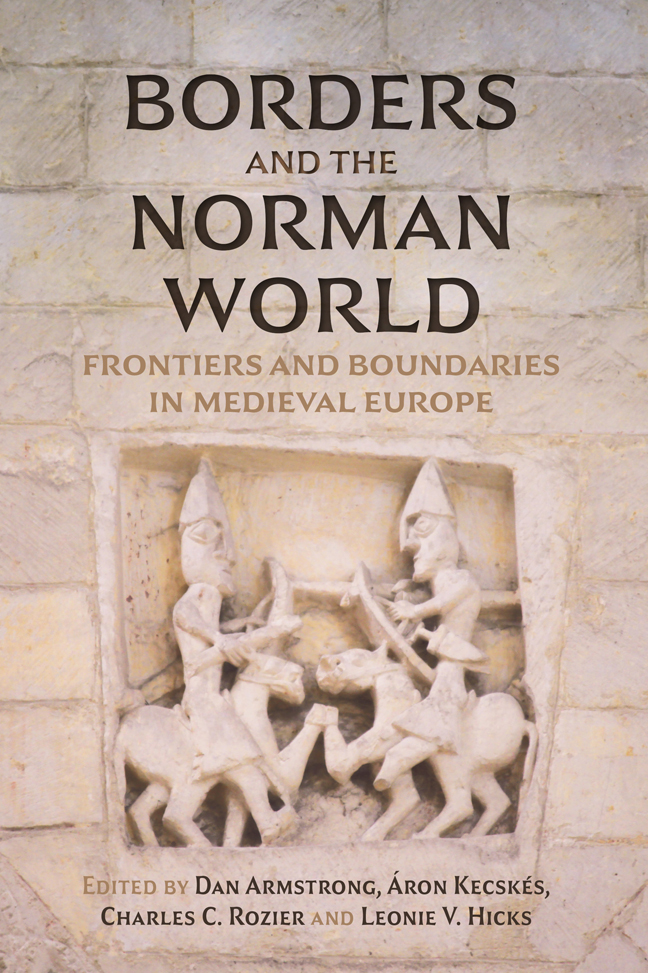Book contents
- Frontmatter
- Contents
- List of Illustrations
- List of Contributors
- Acknowledgements
- List of Abbreviations
- Naming Conventions
- Maps
- Introduction: Writing the Borders of the Norman World
- Part I Borders in and Around the Norman World
- Part II Ecclesiastical Borders
- Part III Conceptual Boundaries
- Afterword: Borders, Landscapes, and Seascapes
- Select Bibliography
- Index
12 - Is there a ‘Norman’ Historiography of the Conquest of Southern Italy?
Published online by Cambridge University Press: 22 February 2024
- Frontmatter
- Contents
- List of Illustrations
- List of Contributors
- Acknowledgements
- List of Abbreviations
- Naming Conventions
- Maps
- Introduction: Writing the Borders of the Norman World
- Part I Borders in and Around the Norman World
- Part II Ecclesiastical Borders
- Part III Conceptual Boundaries
- Afterword: Borders, Landscapes, and Seascapes
- Select Bibliography
- Index
Summary
The Historiographical Productions Of the ‘Norman’ conquests constitute a remarkable collection of literary works composed in Latin between the eleventh and twelfth centuries, of which Dudo of Saint-Quentin's De moribus et actis Normannorum ducum is often considered foundational. Each of the texts that make up this production have both literary and historical links, for example, the context of their composition, the intentions of the authors and their patrons, and their literary genre. Since these texts are often lumped together under the heading of ‘Norman historiography’, the question of their homogeneity arises, especially when one wants to compare works written in the Duchy of Normandy or the Kingdom of England with those composed in southern Italy. Therefore, in this chapter, we will consider to what degree we can speak of ‘Norman’ historiography in these texts that tell the story of the conquest and formation of ‘Norman states’. In other words, is it possible to label a work as ‘Norman’ even if it was not written in the Duchy of Normandy? Should we establish a clear historiographical separation – or border – between those works composed in Northern Europe and southern Italy? Or, is it more appropriate to see these works as connected? And if so, what are the significant overlaps between these literary worlds? What are the criteria that makes a work ‘Norman’? In answering these questions, we shall shed light on the possible cross-border circulation of texts and ideas between the ‘Norman states’ – the Duchy of Normandy, the Kingdom of England, and the Principality of Capua and the Duchy of Apulia, Calabria, and Sicily – considering their implications for Norman identity and the writing of history in the Norman World.
The chroniclers themselves invite us to draw comparisons between the conquests carried out by the Normans: among them, Amatus of Montecassino is the most prominent, who, at the very beginning of his work, reports how the Normans dispersed from the farthest reaches of France to various parts of the world, not ‘placing themselves in the service of others; rather, like the ancient warriors, they desired to have all people under their rule and dominion’.
- Type
- Chapter
- Information
- Borders and the Norman WorldFrontiers and Boundaries in Medieval Europe, pp. 301 - 330Publisher: Boydell & BrewerPrint publication year: 2023



